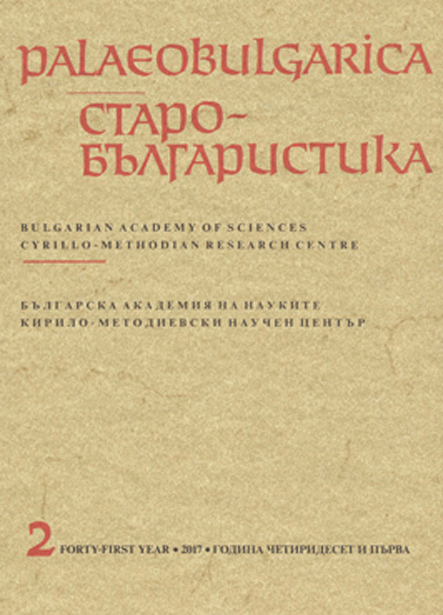За езика на Учителното евангелие на презвитер Константин (лични и нелични глаголни форми)
About the Language of The Didactic Gospel by Constantine Presbyter (Finite and Non-Finite Verb Forms)
Author(s): Tatyana SlavovaSubject(s): Language and Literature Studies
Published by: Кирило-Методиевски научен център при Българска академия на науките
Summary/Abstract: The object of the present study is the language of The Didactic Gospel by Constantine Presbyter. Examined are finite and non-finite verb forms in the periphrastic future with the auxiliary verbs áûòè and ìîùè, the periphrastic prohibitive of the type íå ìîçè + infinitive, aorist tense, perfect tense, conditional mood, present and past active participles, as well as the infinitive áûò¹. The basis for the analysis is a full excerption of the four complete copies of the text as edited by Tihova 2012. The language is analyzed in order to test the hypothesis of the localization of The Didactic Gospel in the western (southwestern) area of the First Bulgarian State. On the one hand, the article traces an archaic linguistic state and manifestations of the early Cyrillo-Methodian written practice, with which Constantine, a disciple of Method, could be expected to comply. On the other hand, it reveals linguistic traits that are mainly characteristic for eastern Bulgarian texts.This indicates that The Didactic Gospel was created in an environment where both tendencies were at work functioned.
Journal: PALAEOBULGARICA / СТАРОБЪЛГАРИСТИКА
- Issue Year: 2017
- Issue No: 2
- Page Range: 3-21
- Page Count: 19
- Language: Bulgarian
- Content File-PDF

